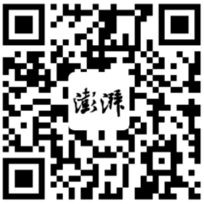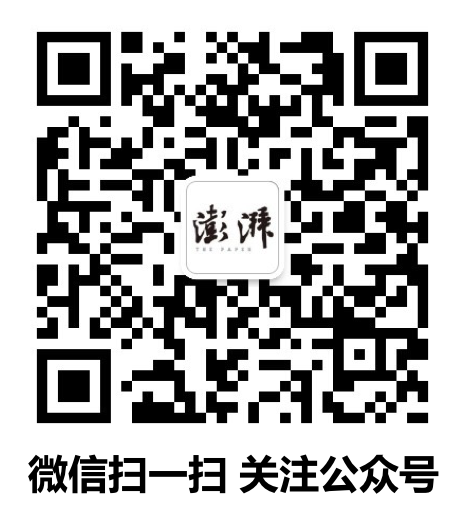- +1
周波:为什么美国必须立即撤销对中国防长的制裁
【编者按】
从上月以来,美国的重要人物如国务卿布林肯、财长耶伦、美国总统气候问题特使克里接连访华。其中最引人注目的恐怕莫过于百岁高龄的基辛格,中国国家主席习近平、国务委员兼国防部长李尚福、中央外办主任王毅先后会见了他。
一时间,阴云笼罩的中美关系似乎如耶伦抵达北京时的天空那样,出现了一道彩虹。然而,中美关系的阴云并未消散,前路仍有风雨。比如,中国防长李尚福仍在美国的制裁名单上。7月12日,中国驻美大使谢锋到访五角大楼,应约会见美国助理国防部长拉特纳。《环球时报》称,拉特纳在此时与谢锋会见可能想借一波当前中美各领域恢复互动的“东风”,反映了美国国防部对于同中方在军事层面建立沟通管道的迫切需求。谢锋大使就两国两军关系阐明立场,要求美方采取行动排除障碍、管控分歧,推动两国两军关系逐步重回正轨。
正如澎湃新闻(www.thepaper.cn)此前刊发的一篇文章所指出的,中方有等待彩虹的耐心,但美方也需要展现足够的诚意。美方如果真的想恢复两国军方的交流沟通,以避免危险的误判,那现在是时候解除对中国防长的制裁了。
虽然中美两国近期在外交和军事方面取得了进展,但两国军方之间的沟通与交流仍处于冻结状态。美国对中国国防部长李尚福上将的制裁是一个必须解决的症结,以避免出现危险的误判风险。
7月6日,当美国财政部长珍妮特·耶伦(Janet Yellen)抵达北京国际机场时,罕见的一幕出现了:一场阵雨过后,天空中出现了彩虹。美国驻华大使尼古拉斯·伯恩斯(Nicolas Burns)不失时机地向面带微笑的耶伦指出了这一点。中国国务院总理李强在会见耶伦时也提到了那道彩虹,他说:“我想,中美关系不止是风风雨雨......经历了风雨,我们一定会看到更多的彩虹。”

Janet Yellen
现在的问题是,在再次见到彩虹之前,我们还要经历多少风雨。虽然两国在外交和经济领域似乎取得了一些小的进展,但在一个关键领域,即中美两军之间的沟通却没有任何“去风险”的迹象。
曾几何时,中美双方都认为两国军方之间的联系与沟通甚至可以成为政治或经济紧张局势中的压舱石。然而这种乐观情绪早已一去不复返。在时任美国众议院议长南希·佩洛西(Nancy Pelosi)窜访台湾之后,北京方面以在台海周边地区举行数日军事演习作为回应,并中止了中美军方之间的互动。
问题在于,即使中国人民解放军现在想恢复对话,这一选项也根本不存在。现任中国国防部长、国务委员李尚福上将曾担任中国人民解放军装备发展部部长。自2018年以来,因中国从俄罗斯主要武器出口商——俄罗斯国防出口公司(Rosoboronexport)购买战斗机和防空导弹系统,他受到美国方面的制裁。这种制裁本身就是不可理喻的,中国与俄罗斯的军事贸易没有违反任何国际制度,两个主权国家之间的此类贸易本就与美国无关。
6 月初在新加坡举行的香格里拉对话会上,李尚福将军和美国国防部长劳埃德·奥斯汀(Lloyd Austin)只是简短地打了个招呼,然后两人就面无表情地坐在同一张桌子上,他们之间没有任何眼神交流,这令人唏嘘不已。对话会的四天前,北京方面拒绝了五角大楼邀请中国防长与美国防长在新加坡会面的邀请。
如果说历史能够提供有益的训诫,那么美国当代史可以从另一个角度来解读,即美国对其他国家的制裁与干预是如何屡屡失败的:美国对朝鲜和古巴的制裁并没有成功实现政权更迭;它也没能改变缅甸、尼加拉瓜、委内瑞拉、叙利亚、也门和伊朗的行为方式。自俄乌冲突以来,对俄罗斯的制裁无论规模有多大,都只是暂时性地阻碍了俄罗斯经济的发展,却也并没有使其严重瘫痪。
对中国国防部长的轻率制裁正在关上一扇窗,而保持开放对两国都有好处。不妨试想一下,在中国国防部长的五年任期内(比美国总统的任期还长),他将无法访问美国,也不会邀请美国国防部长访华。其他层面的交流即便有也将寥寥无几。再想想另一种情形——中美军方的高层领导无法在2008年建立的中美军事热线上彼此沟通,而这条热线本应在南海或台湾海峡出现最危险的情况下发挥关键作用。
在香格里拉对话会上,当被问及中国海军舰机在台湾海峡拦截美国军舰的问题时,李尚福将军表示,他希望大家想一想为什么所有类似的问题都发生在中国附近,而不是其他国家附近?不可否认,两国军方之间的对话有时就像 “鸡同鸭讲”,但有的谈总比没得谈好。缺乏沟通必然会导致误解和误判。
这种缺乏沟通的情况甚至在冷战时期都没有出现过。尽管存在相当程度的敌意,但当时两个超级大国仍保持着畅通的沟通渠道,并制定了一系列建立信任的措施,其中一些,例如核军控条约——《新削减战略武器条约》(New START)即使在发生了俄乌冲突的情况下仍然有效。
华盛顿方面怀疑中国将不沟通作为获取利益的策略。奥斯汀在香格里拉对话会上说:“对话不是一种奖励。对话是必要的。”但对中方来说,美国的制裁本身就形成了一个先决条件,在对话开始前就制造了一种不愉快的气氛。美国的立场是,制裁在技术上并不禁止奥斯汀和李尚福之间的会晤,因此没有必要取消制裁——这是美国式虚伪的典型例子。
理论上来说,解除对李尚福的制裁并不困难,因为制裁本身是拜登政府可以撤销的行政命令,但这对美国总统乔·拜登(Joe Biden)来说可能是个政治上的挑战,因为他不希望在鹰派眼中显得对中国软弱,尤其是在2024年大选即将到来的这个时间点。
如果这两支世界上最大的军队在未来五年内仍不进行对话,那么这种局面将比冷战时期任何时候都更加危险。拜登和习近平主席在去年11月会晤时同意为两国关系设定一个“底线”,以确保竞争不会滑向冲突。要做到这一点,套用奥斯汀的讲话来说就是——解除对中国国防部长的制裁不是奖励,而是必要的。而正确的时机就是马上。
(周波,清华大学战略与安全研究中心研究员。本文英文版首发于《南华早报》,英文版原文见下。中文版译者:刘炜康)
附英文版原文:
Why the US must revoke sanctions on China’s defence minister – now
• While progress has been made on the diplomatic and military front, US-China military-to-military contact remains frozen
• US sanction on Chinese Defence Minister General Li Shangfu is a sticking point that must be resolved to avoid the risk of dangerous miscalculations
When US Treasury Secretary Janet Yellen arrived at Beijing’s international airport on July 6, something rare appeared – a rainbow in the sky after a shower. American ambassador to China Nicolas Burns wasted no time in pointing this out to a smiling Yellen. When he met Yellen, Chinese Premier Li Qiang also mentioned the rainbow, saying, “I think there is more to China-US relations than just wind and rain…we will surely see more rainbows after going through the wind and rain.”
The question is how much wind and rain we will have to confront before we see a rainbow again. While there seems to have been small advances in the diplomatic and economic fields, there is no sign of “de-risking” in one crucial area – communication between the two militaries.
There was a time when both sides believed that the military-to-military relationship could even serve as a ballast stone amid political or economic tension. Such optimism is long gone. In the wake of then US House speaker Nancy Pelosi’s visit to Taiwan, Beijing responded with days of military exercises near and around the island and suspended US-China military-to-military interactions.
The question is even if the People’s Liberation Army wishes to resume dialogue now, it is simply impossible. General Li Shangfu, now Chinese defence minister and state councillor, used to head the PLA’s Equipment Development Department. He has been under US sanctions since 2018 over the purchase of combat aircraft and an air-defence missile system from Rosoboronexport, Russia’s main arms exporter.
This is ridiculous. China’s military trade with Russia was not in violation of any international regime and such trade between two sovereign states has nothing to do with the United States.
At the Shangri-La Dialogue in Singapore in early June, it was sad to see General Li and American Secretary of Defence Lloyd Austin briefly greet each other and then sit stone-faced at the same table without making eye contact. Four days before the dialogue, Beijing declined the Pentagon’s invitation for a meeting between the Chinese defence minister and his American counterpart in Singapore.
If history provides useful lessons, contemporary American history could be read in another way – how its sanctions on others have repeatedly failed. The US sanctions on North Korea and Cuba didn’t succeed in regime change. Nor did they work in changing the behaviours of Myanmar, Nicaragua, Venezuela, Syria, Yemen and Iran. The sanctions on Russia since the war in Ukraine, however massive, have stymied but not seriously crippled the Russian economy.
A frivolous sanction on China’s defence minister is closing a window that both countries would benefit from keeping open. Just imagine that during the five years of his tenure – longer than the tenure of an American president – China’s defence minister won’t be able to visit the United States and he won’t invite his American counterpart to visit China. There will be few, if any, exchanges at other levels.
Imagine for another moment that the Chinese and American military leaders don’t talk on a hotline which was established in 2008 and is supposed to play a crucial role in the most dangerous situations, be it in the South China Sea or in the Taiwan Strait.
At the Shangri-La Dialogue, when asked about a Chinese navy ship aircraft intercepting a US military vessel in the Taiwan Strait, Li asked people to think why all the problems occurred near China and not near other countries.
Admittedly, the military-to-military dialogue between the two countries sometimes resembles a conversation between people talking at cross-purposes, but it is better than no talk at all. The absence of communication will inevitably lead to misunderstanding and miscalculation.
Such a situation wasn’t even seen during the Cold War. In spite of absolute hostility, the two superpowers maintained open lines of communication and established a series of confidence-building measures, some of which, like the New START nuclear arms control treaty, are still in place, despite the Ukraine war.
Washington suspects that Beijing is using no communication as a strategy for reaping benefits. At the Shangri-La Dialogue, Austin said, “dialogue is not a reward. It is a necessity”. But for Beijing, American sanctions constitute a precondition itself and create a sour atmosphere even before talks start.
The US position that the sanctions do not technically prohibit a meeting between Austin and Li and therefore there is no need to remove them, is a textbook example of American hypocrisy.
Technically speaking, lifting sanctions on Li is not very difficult in that the sanction is an executive order that the Biden administration can revoke, but it might be politically challenging for US President Joe Biden, who doesn’t wish to appear weak towards Beijing in the eyes of China hawks, especially before the election in 2024.
There has been much discussion of whether we have slipped into a new cold war. But if the two largest militaries don’t talk to each other in the next five years, this situation would be more dangerous than anytime during the Cold War.
When they met in November last year, Biden and President Xi Jinping agreed on putting a “floor” under the relationship to ensure that competition did not veer into conflict. For that to happen – to loosely paraphrase Austin’s remarks – lifting sanctions on the Chinese defence minister is not a reward, it is a necessity. And the right time is now.
Senior Colonel Zhou Bo (ret) is a senior fellow of the Centre for International Security and Strategy at Tsinghua University and a China Forum expert





- 报料热线: 021-962866
- 报料邮箱: news@thepaper.cn
互联网新闻信息服务许可证:31120170006
增值电信业务经营许可证:沪B2-2017116
© 2014-2025 上海东方报业有限公司




